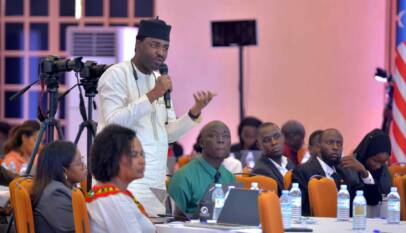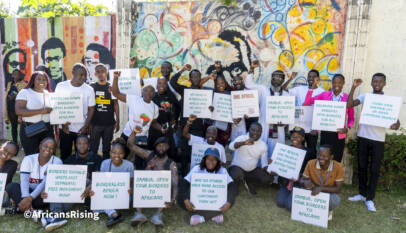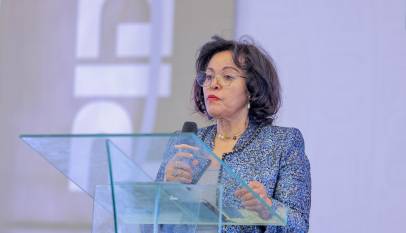Leveraging Technology to Unlock Financial Inclusion and Economic Mobility in Malawi
By Dumisani Kadango, Country Manager, TransUnion Malawi

LILONGWE, Malawi 7 August 2025 -/African Media Agency (AMA)/- Financial inclusion has become one of the most critical building blocks for sustainable economic development, not only in Malawi but across emerging markets. When individuals and small businesses have access to affordable, appropriate, and timely financial products and services, they are empowered to save, invest, manage risk, and improve their quality of life.
Yet in Malawi, a portion of the population still faces challenges in accessing comprehensive financial services. According to the 2023 FinScope Consumer Survey, 88% of Malawian adults are considered financially included, meaning they have access to and actively use formal or informal financial products and services. This marks a major shift from 2014, when 51% of adults were financially excluded. Notably, formal financial inclusion, which refers to the use of services provided by regulated financial institutions such as banks, microfinance providers, and mobile money operators, now stands at approximately 74%, up from 34% in 2014. The most rapid growth has been in the use of mobile money and other formal non-bank channels, which surged from 18% to 73% over the same period. While this progress is impressive, it conceals deeper issues. Only 13% of adults hold traditional bank accounts, down from 27% in 2014. This suggests that although mobile channels have expanded access significantly, reliance on full-service banking remains limited, raising concerns about savings, credit, and financial resilience.
Expanding Access Through Alternative Data
One of the biggest barriers to formal financial inclusion has been the lack of traditional credit information. Conventional lending relies on payslips, collateral, and credit histories, criteria many Malawians, especially informal workers and rural entrepreneurs, cannot meet. The rise of alternative data sources such as mobile money transaction logs, airtime purchases, utility payments, and other digital footprints offers a promising solution. These indicators allow lenders to better assess financial reliability and extend credit responsibly to underserved communities.
At TransUnion Malawi, we are supporting this shift by leveraging data-driven innovation to enable lenders to see beyond traditional credit histories. Through responsible use of alternative data, scoring solutions, and deep consumer insights, we’re working with partners across the financial ecosystem to help unlock access for those historically excluded, without compromising financial stability.
This approach is not merely about approving more loans; it is about responsible lending. When implemented correctly, data-driven credit scoring reduces risk for lenders while opening doors to economic opportunity for those previously excluded from the formal financial system.
Digital Platforms as Vehicles for Empowerment
Mobile phones have become the gateway to financial inclusion in Malawi. Digital platforms are breaking down longstanding barriers and reshaping how individuals engage with financial services. For example, a young entrepreneur in Lilongwe can obtain a microloan through a mobile app, unlocking capital previously out of reach. In Dedza, a smallholder farmer can access weather-indexed crop insurance via SMS, providing protection against climate-related risks. Meanwhile, a student in Zomba can use digital savings platforms to manage finances, monitor spending, and build a financial footprint that supports future borrowing.
These digital tools are more than convenient; they are transformative. Reliable, anytime-anywhere access to financial services through digital platforms reduces the physical, bureaucratic, and psychological barriers that have long excluded many from the formal financial system.
Building Trust and Digital Literacy
Despite growth in access, many remain hesitant to engage with digital financial services due to mistrust, lack of understanding, or prior negative experiences. Financial education and consumer protection are therefore vital.
Technology can serve a dual purpose: facilitating service delivery and providing education. Interactive SMS campaigns, in-app learning modules, and community-based digital training help demystify financial products, clarify terms, and guide users toward informed decisions. Transparency, through digital credit reports, real-time transaction alerts, and clear communication, empowers consumers to understand and manage their own financial profiles. When users grasp how their actions affect their financial futures, they are more likely to engage confidently and responsibly.
The Role of Collaboration
Achieving deep financial inclusion requires collective action. Regulators must craft policies that promote innovation while protecting consumers. Financial institutions need to adopt new models that reach underserved populations. FinTech companies and mobile network operators must develop accessible, user-friendly digital solutions tailored to diverse needs. Civil society organisations play a critical role in advocating for transparency, inclusivity, and representing marginalised voices.
This ecosystem approach ensures inclusion is not just broad but meaningful, enabling financial engagement and resilience. It means every Malawian, regardless of income or location, can participate fully in the economy, saving securely, borrowing wisely, investing in livelihoods, and safeguarding against uncertainty.
Seizing the Opportunity
Technology offers Malawi a unique chance to leapfrog traditional barriers to financial access. However, this promise can only be realised through intentional design, trust-building, collaboration, and ongoing financial education. If stakeholders unite around these priorities, the result will be far more than expanded access, it will ignite durable economic mobility and truly inclusive growth for Malawi’s future.
Distributed by African Media Agency (AMA) on behalf of TransUnion.
About TransUnion (NYSE: TRU)
TransUnion is a global information and insights company with over 13,000 associates operating in more than 30 countries, including Botswana, Kenya, Malawi, Namibia, Rwanda, South Africa, eSwatini, and Zambia. We make trust possible by ensuring each person is reliably represented in the marketplace. We do this by providing an actionable view of consumers, stewarded with care.
Through our acquisitions and technology investments we have developed innovative solutions that extend beyond our strong foundation in core credit into areas such as marketing, fraud, risk and advanced analytics. As a result, consumers and businesses can transact with confidence and achieve great things. We call this Information for Good® — and it leads to economic opportunity, great experiences and personal empowerment for millions of people around the world.
For more information visit: www.transunionafrica.com
Media Contact:
Keabetsoe Matshediso
keabetsoe.matshediso@fleishman.co.za
The post Leveraging Technology to Unlock Financial Inclusion and Economic Mobility in Malawi appeared first on African Media Agency.















